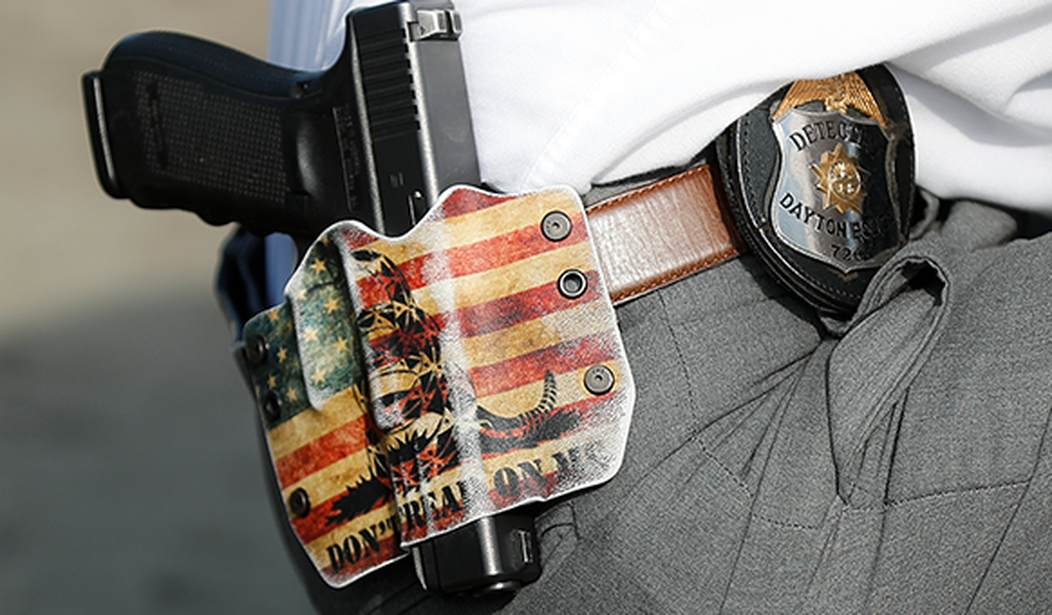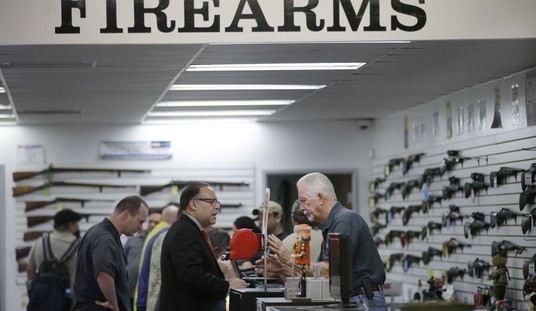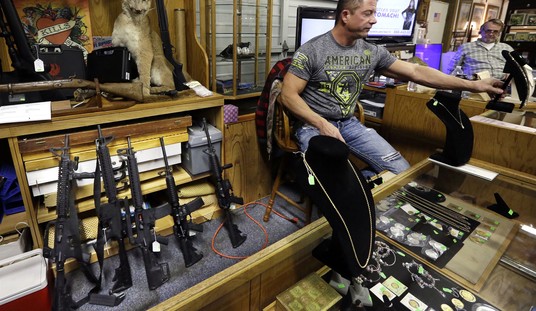“Habeas corpus,” which is Latin for “you may have the body,” is an ancient legal principle intended to prevent people from being imprisoned illegally. Under the Vermont law, the state’s attorneys of each county had to bring any alleged runaway slave before a judge. If the judge failed to release the accused, the defendant had the right to a trial by jury, with the state covering the costs.
The Vermont law threatened to do more than just slow the return of fugitive slaves. In reality, given the public’s sympathies, any alleged runaway brought before a Vermont judge or jury had a good chance of being freed.
The Daily National Intelligencer of Washington, D.C., attacked the Vermont law. “We are mortified and astonished,” the editors wrote, “that such an enactment should not only have received the concurrence of the Legislature, but the sanction of the Governor.”
Gun control advocates in Virginia are getting desperate to derail the Second Amendment Sanctuary movement that’s swept the state since the the Election Day majorities of anti-gun candidates in both chambers of the legislature. More than 40 counties have now adopted resolutions or ordinances vowing not to enforce unconstitutional gun control laws, and dozens more are expected to do so before the 2020 legislative session kicks off in early January.
The Washington Post has called supporters of the movement “mischief makers” who are “sowing chaos”, while anti-gun activist Lori Haas has tried to portray the movement as mere empty rhetoric (though she seems awfully concerned about it), but their criticism hasn’t slowed down the wave of support. Now, Richmond Times-Dispatch columnist Jeff Shapiro’s decided to take a swing at the Second Amendment supporters turning out in record numbers across the state by comparing them to slaveowners.
Latest column: The strategy recalls a specious, 19th-century notion advanced by defenders of slavery that states could veto objectionable federal law by standing between their citizens and the national government.https://t.co/tucjN4N0aG via @rtdnews
— Jeff E. Schapiro (@RTDSchapiro) December 4, 2019
Here’s one big difference for Shapiro: gun owners are fighting for individual liberty, not fighting for the right to treat people as property. In fact, I could argue that the strategy of Shapiro and gun control supporters recalls one of the more terrible moments in Virginia history; the aftermath of Nat Turner’s Rebellion.
Virginia’s anti-gun forces responded to the horrific shootings in Virginia Beach earlier this year by introducing legislation that would violate the right of law-abiding citizens to keep and bear arms. Back in 1831, in the aftermath of the slave revolt led by Turner, legislators in Virginia responded to the deaths of dozens of Virginians by passing laws that made it illegal for free black citizens to possess arms. As historian Clayton Cramer notes in his article “The Racist Roots of Gun Control,”
Virginia’s response to Turner’s Rebellion prohibited free blacks “to keep or carry any firelock of any kind, any military weapon, or any powder or lead…” The existing laws under which free blacks were occasionally licensed to possess or carry arms was also repealed, making arms possession completely illegal for free blacks. But even before this action by the Virginia Legislature, in the aftermath of Turner’s Rebellion, the discovery that a free black family possessed lead shot for use as scale weights, without powder or weapon in which to fire it, was considered sufficient reason for a frenzied mob to discuss summary execution of the owner. The analogy to the current hysteria where mere possession of ammunition in some states without a firearms license may lead to jail time, should be obvious.
Stripping people of their civil rights in the name of public safety has a long tradition in Virginia unfortunately, and in 1831 I’m sure Virginia’s press was just as supportive of banning free blacks from bearing arms then as they’re supportive of banning free Virginians from continuing to possess their semi-automatic rifles and 20-round magazines now.
Shapiro’s right that slaveowners did try to use nullification in an attempt to safeguard their ability to own human beings, but he neglects to mention that abolitionists did the very same thing in an attempt to protect the human rights of black Americans. South Carolina’s nullification efforts, which Shapiro focuses on, came in the 1830’s (shortly after Nat Turner’s Rebellion, as a matter of fact), but twenty years later, in the 1850’s, opponents of the Fugitive Slave Act also acted to defy the law through nullification and other means.
Wisconsin’s Supreme Court declared the federal law unconstitutional in 1855, but was overruled by the U.S. Supreme Court. In Vermont, lawmakers passed the “Habeas Corpus” law, which made enforcement of the Fugitive Slave Act practically impossible in the state.
Contrary to the federal law, Vermont’s Habeas Corpus Law required state’s attorneys to “use all lawful means to protect, defend, and procure to be discharged” anyone who had been “arrested or claimed as a fugitive slave.”
“Habeas corpus,” which is Latin for “you may have the body,” is an ancient legal principle intended to prevent people from being imprisoned illegally. Under the Vermont law, the state’s attorneys of each county had to bring any alleged runaway slave before a judge. If the judge failed to release the accused, the defendant had the right to a trial by jury, with the state covering the costs.
The Vermont law threatened to do more than just slow the return of fugitive slaves. In reality, given the public’s sympathies, any alleged runaway brought before a Vermont judge or jury had a good chance of being freed.
The Daily National Intelligencer of Washington, D.C., attacked the Vermont law. “We are mortified and astonished,” the editors wrote, “that such an enactment should not only have received the concurrence of the Legislature, but the sanction of the Governor.”
Meanwhile, juries in Massachusetts and other hotbeds of abolitionism regularly returned not guilty verdicts against those charged with violating the law and assisting fugitive slaves find their way to freedom in Canada.
Resistance to bad and unpopular laws has a long and storied tradition in this country, and its been deployed across the political spectrum and even the fight over the Second Amendment. When Pittsburgh Mayor Bill Peduto signs local gun control ordinances in violation of state firearms preemption law, or when Billings, Montana passes a univeral background check law despite being prohibited from doing so by state law, gun control advocates cheer and offer to assist in their legal fight. When Second Amendment supporters vow not to enforce unconstitutional laws, however, those same gun control advocates cry foul.
It’s obvious that Virginia’s gun control advocates didn’t anticipate the reaction by counties and communities to their gun control plans, and they have no real response other than lashing out. They’d be far better off trying to talk with Second Amendment supporters, not at them, because we’re willing to have a conversation, but many of us are not willing to comply with their demands to give up our guns and our rights.









Join the conversation as a VIP Member